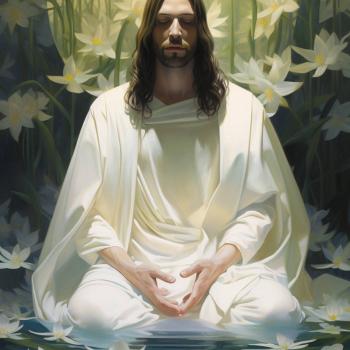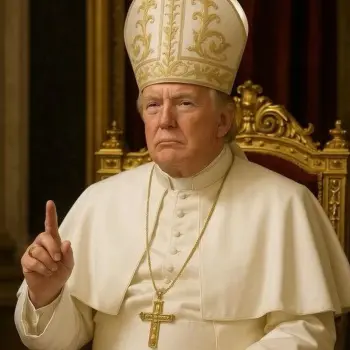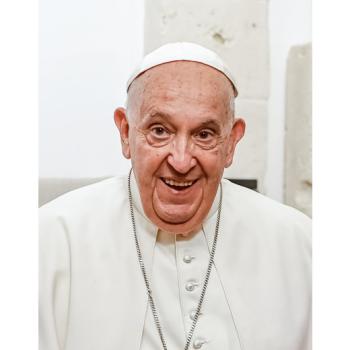There are some weeks when I just know I'm supposed to write about a topic, and yet I mentally resist doing so, even though I know I'm going to end up writing about it anyway. This is one of those weeks.
I will lead with some preparatory matter relating to my lifelong interest in politics. I spent the summer of 1968—the summer after second grade—diligently following the presidential race. During both parties' political conventions, I watched the day-long news coverage from a perch on the living room floor, transfixed before our old black-and-white TV set. It was my solemn conclusion that the Republicans probably should have gone with Reagan, although he wasn't a serious prospect that year. Unlike the candidates eventually selected by the two parties (Nixon and Humphrey), Reagan didn't come off as tired or boring when he talked about the Soviets and the Vietnam War.
Political ideas were in my blood. My younger brothers and I used to gather my dolls, their trucks, and all our stuffed animals, and drive special operations convoys down the hallway to fight the international bad guys. Whether it was garden-variety criminals, kung-fu gangsters, the evil Communists, or the Viet Cong, my brothers supplied the fight choreography and all the cool sound effects, and I provided the national political objectives and the grand strategy. Scaramouche was born with his sense that the world was mad; I was born with the sense that political ideas made the world go 'round.
I mention this because what I have been commissioned to say this week is that God is much more interested in His personal relationship with each of us, and in how we view and treat each other, than He is in our political ideas about government.
I don't think this means that He doesn't care how governments behave. Americans believe we govern ourselves, after all; God's biblical admonitions to rulers and other government authorities would apply to us as well as to kings and prelates. Politics is an essential element of any society, and God's principles apply to it as they do to everything else.
But the truth—take it from a political junkie—is that political ideas don't make the world go 'round. One of the most profound truths we can know is that organizing ourselves for politics and government is not a means of mastering fate or attaining human salvation. Ideas about politics and government matter not because they control our future, but because they arise from how we propose to treat our fellow men, and how we see good and evil, and authority and responsibility. Above all, they arise from how we see the sovereignty of God.
The near future is likely to bring us face to face with these truths. Conservatives in the United States have been very disappointed in the field of Republican candidates for the 2012 nomination. The sense of frustration is widespread: it seems there is no candidate whom a majority of voters can respect, trust, and have enthusiasm for. There is a palpable feeling of "breakdown," as if the political momentum of responsible liberty for a virtuous people—the founding premise of America—is grinding to a halt. Many Americans are discouraged and worried about our nation's future, seeing on the horizon no political leader on whom we can rely to take us in a better direction.
Perhaps that last sentence provides a clue to where this column is going. The "word" that has to be spoken in 2012 is that politics and government can't fix what ails us. Government could be less of a problem for the citizenry, and I am all for that, but cultivating perfection through national government is not the purpose of the life God has given us. Government and politics are inadequate to managing the estate of man. They do not merit our devotion.
An excessive focus on politics and government shifts our minds and hearts from knowing God to knowing theory, strategy, and each other. If we found our solutions in government, we would ascribe to government the glory, power, righteousness, and beneficence that belong only to God. In fact, I believe that the great philosophical error of the Western Enlightenment is precisely its focus on the possibilities for organizing mankind for "success" through various schemes of government. The spread of this concept has led Westerners to put our trademark form of secular, national government in the place only God should occupy in our lives.
As we face 2012, I would make two points about this improper view of government. One is that God will not share His glory with earthly government. He will not allow us to believe that we have secured our own future by electing the "right" candidate. God rewards the righteous behavior He urges on us, but when we attribute to our superior political approach the benefits only God can confer, we are deceiving ourselves with a pathetic and dangerous arrogance.





